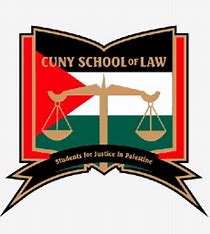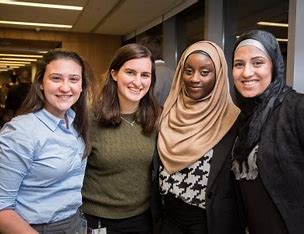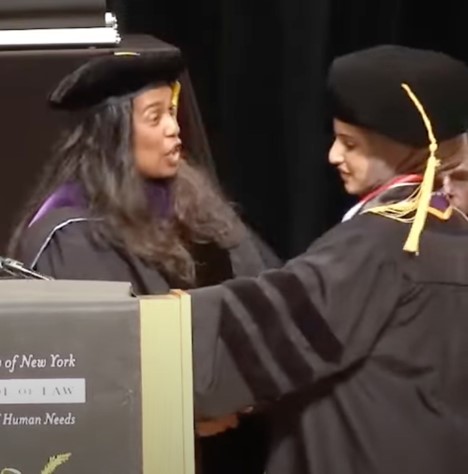One Yemeni American Graduate’s Free Speech is Another’s Hate Speech: Arab American Law School Graduate Raises the Ire of Many

By: John Mason / Arab America Contributing Writer
Yemeni immigrant Law School graduate Ms. Mohammed gave a speech in which she wanted to “celebrate CUNY for being one of the few law schools to defend the rights of its students to organize and speak out against Israeli settler colonialism.” She took a lot a flak for her speech from both within and without her university. The Law Faculty took her side and insisted her address was free speech and not, according to others, hate speech.
University trustees mainly silent over law grad’s controversial speech
The New York Post first uncovered the story and then, two weeks after Fatima Mousa Mohammed gave her ‘infamous’ graduation speech, it broke. The law school graduation took place at the City University of New York (CUNY) School of Law in Queens, a borough of the City. Ms. Mohammed is a Yemeni immigrant.
As the Post put it, “The silence is deafening as the vast majority of CUNY Board of Trustees members refused to weigh in Wednesday as outrage over a law school graduate’s now-notorious ‘hate-filled’ commencement speech continues to mount — and the school’s dean faces calls to be fired.” Just five of 17 of CUNY’s board members publicly denounced the speech, calling it revolutionary and disruptive of the legal system’s “white supremacy.” This denunciation clearly misrepresents Ms. Mohammed’s message
Ms. Mohammed’s speech referenced, in her words, her wanting to “celebrate CUNY for being one of the few law schools to defend the rights of its students to organize and speak out against Israeli settler colonialism.” She urged her fellow graduates to “fuel the fight against capitalism, racism, imperialism and Zionism around the world.”

Furthermore, Ms. Mohammed stated in her speech, “This is the law school that passed and endorsed BDS on a student and faculty level recognizing that … as Israel continues to indiscriminately rain bullets and bombs on worshipers, murdering the old, the young, attacking even funerals and graveyards, as it encourages lynch mobs to target Palestinian homes and businesses as it imprisons its children … that our silence is no longer acceptable.”
A subsequent defense of Ms. Mohammed’s speech noted that it was “disingenuous to characterize these factual descriptions as antisemitic, when they describe the conditions of Palestinian life.” Whether CUNY board members supported Ms. Mohammed’s freedom of speech or not, they did agree on the need for guidelines for future speeches. It is noted that she submitted a draft of her speech to the school’s leaders, including the Dean, but that she had deviated from her draft.
A huge donor to CUNY, Jewish activist Ronald Lauder, who leads the World Jewish Congress and is the heir to the Estée Lauder cosmetic firm, was highly critical of the speech. He demanded the law school dean be fired, especially as she was one of the faculty who applauded Ms. Mohammed’s speech. Others condemned the speech as “divisive and antisemitic.” While harsh in its tone, her speech was more directed at the present Israeli regime and its practices against occupied Palestinians on the West Bank and in Gaza.
Attacking Israeli Government’s harsh treatment of occupied Palestinians is not hate speech if it’s factual
The law school Fatima Mousa Mohammed attended at CUNY is one of the most diverse in the nation. And, as the NY Times put it, “among the most ideologically filtered.” It produces graduates who serve the disenfranchised–“Law in the service of human needs.” CUNY Law caters to students who practice the politics of resistance.
Ms. Mohammed was elected by her fellow students to represent them at graduation. She is known as an activist who supports the Palestinian cause. She is not alone in that support, including some of her fellow Jewish classmates. The school’s leadership and her classmates had to know that Palestinians would be at the heart of her speech. What they might not have foreseen is what the Times called “a lightning bolt of antisemitism.” It was not antisemitic, however, but rather directed against Israeli government oppression of an occupied people.
Once Ms. Mohammed’s speech made the headlines, two weeks after the May 12 graduation, they became virulent. Jewish groups and Fox went right for the jugular, expressing horror and disbelief. Senator Cruz got in on the act, exclaiming, “Imagine being so crazed by hatred for Israel as a Jewish State that you make it the subject of your commencement speech.” This is the usual trope used by certain politicians, deliberately confusing antisemitic with anti-rightwing Israeli government oppression of occupied Palestinians.
While CUNY’s handing of the case was confusing, and especially given its public status and dependence on the largesse of politicians for its funds, other reactions were more clearcut. For example, a week or so after Ms. Mohammed’s address, CUNY’s Jewish Law Students Association made a statement supporting her. Referring to her as “our friend and classmate Fatima,” they said it was “disingenuous to characterize these factual descriptions as antisemitic, when they describe the conditions of Palestinian life.”

CUNY’s chancellor and board of trustees released a statement criticizing Ms. Mohammed’s address as “hate speech,” describing her words as “unacceptable’’ and “hurtful to the entire CUNY community.” Contradicting that statement, CUNY law school faculty members defended her, averring that hate speech which includes political affiliation “as a characteristic similar to race or religion is wildly inconsistent with longstanding and legal definitions of the concept of hate speech.”
The NY Times spelled out their objections to how CUNY handled this incident in very clear terms: “Ultimately, when a school inculcates in its students the importance of speaking out against oppression, it cannot be surprised when, given a big platform, they take you up on it. While any effort to have sent Ms. Mohammed’s speech in a different direction would have inevitably resulted in charges of censorship, it might have saved her from the death threats and vitriol that resulted when her speech surfaced beyond the world of the university, as it seemed destined to do.”
City University gets the brunt of criticism for labeling Ms. Mohammed’s address “hate speech”
Faculty at the CUNY School of Law are calling on the university’s administration to retract a statement characterizing Ms. Mohammed’s graduation address as “hate speech,” following criticism of her address as antisemitic. Their support of her is because she is their student, but also because Republicans and Democrats have begun to get in on the act. They have been nothing but negative towards the new graduate. Also, faculty say Ms. Mohammed’s speech is protected under the First Amendment. The University’s ruling against that would have “a chilling effect.”
The Law School’s defense of Ms. Mohammed went even further. According to news source Gotham, their statement read, “The implication that an elected-student speaker at an institution devoted to social justice and human rights was applauded by her peers, faculty, and attendees for engaging in ‘hate speech’ is an affront to both the student speaker and our entire community.” The letter was signed by more than three dozen law school faculty members.

Law School faculty have also demanded an apology to Ms. Mohammed, who has been targeted by “death threats and Islamophobic harassment.” In further defense of Ms. Mohammed, the Law Faculty insisted, “No reasonable interpretation of the student speaker’s remarks would suggest it was ‘hate speech,’ given that none of the student’s comments attacked any persons or protected classes, but at most commented on nations and state institutions that are incontrovertibly causing harm to people domestically and internationally.”
Their communication went even further, insisting, “Moreover, the May 30 Statement’s suggestion that hate speech includes ‘political affiliation’ as a characteristic similar to race or religion is wildly inconsistent with long-standing and legal definitions of the concept of hate speech.”
We can only hope that Ms. Mohammed remains safe, sticks to her principles, and continues to proudly speak out on behalf of Israeli-oppressed occupied Palestinians. Her “outspokenness” as a new graduate will have paid off in terms of her own dignity, that of the people she is defending, and the Law School of which she is a proud graduate.
Sources:
–“She Attacked Israel and the N.Y.P.D. It Made Her Law School a Target,” New York Times, 6/2/2023
–“Majority of CUNY trustees remain silent as disgust mounts over law grad’s ‘hate speech,’” New York Post, 5/31/2023
–“CUNY Law School faculty: Administration must apologize for calling student address ‘hate speech,’” Gothamist, 6/2/2023
John Mason, PhD., who focuses on Arab culture, society, and history, is the author of LEFT-HANDED IN AN ISLAMIC WORLD: An Anthropologist’s Journey into the Middle East, New Academia Publishing, 2017. He has taught at the University of Libya, Benghazi, Rennselaer Polytechnic Institute in New York, and the American University in Cairo; John served with the United Nations in Tripoli, Libya, and consulted extensively on socioeconomic and political development for USAID and the World Bank in 65 countries.
Check out our Blog here!








